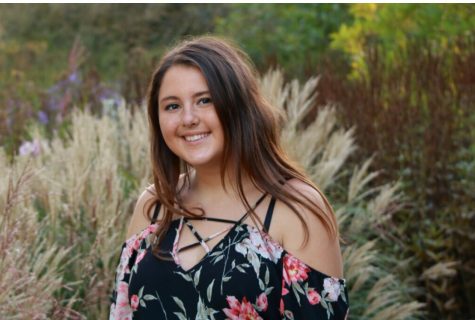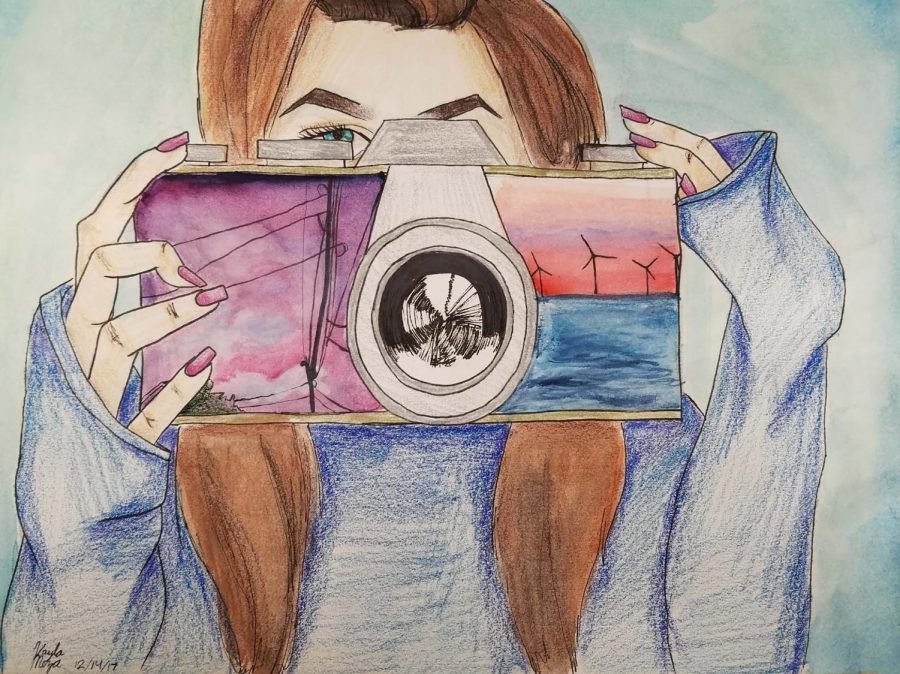A Journey Revealed Through Photographs
OPINION
As I absorbed the beauty of the glistening sun, the sparkling ocean and the roaring waves, my eyes seemed to shift towards the Canon Powershot S3 and not at the beauty of Key West.
I shift my thoughts, whether positive or negative, into my photographs and I try to find inspiration where possible. I am able to observe scenery that seems ordinary but turns into something extraordinary.
Personally, photography has always been a passion of mine because it allows me to look at the world through many different perspectives. I love to express myself in a way that not everyone is capable of understanding.
Photography is a tool that one may utilize without attending art school or being professionally trained. Pursuing photography as a hobby offers many psychological benefits that have a positive impact on students.
Not only does photography serve as a way to express one’s self, photography helps clear your mind off of daily struggles and issues, lower your blood pressure, pulse and breathing rate, and make you mindful of the present moment, according to Thought Co, a group of freelance writers who share a mission to provide content that is not only reliable, but that leaves readers feeling educated, empowered, and understood.
According to the Institute of Mental Health, photography is an accessible means of communications for people to share their thoughts, viewpoints, frustrations and joys.
Consepcion Nieves, Div. 880, has been photographing her own work for about two years now, but photography has always been a part of her life.
“My mom was the type of person to be carrying a camera wherever she goes and she would like to keep records of anything that would happen in our days,” Nieves said. “It sort of became a part of me.”
According to Nieves, she focuses in on the moment and what the lens is capturing, ignoring what is happening around her.
“I like to just forget about anything that is bothering me when I am taking pictures,” Nieves said. “I am the type of person that likes to spend time alone and just admire any beauty I find in the world and photography is the only way that I can really capture that beauty.”
Another photographer Jacqueline Pacheco, Div. 858, has been photographing for about four years now and is currently in the Media Crew class.
“I wanted to be able to always have a reminder of what I was doing at a certain chapter in my life,” Pacheco said. “My best solution to this was always carrying a camera to capture these moments through a camera.”
Photographs capture experiences that are not able to be captured in other ways. They serve as a method to remember the moment. As a result, photo-taking leads people to become more engaged with the encounter.
“The end result is always worth it. You can re-see everything you saw in one shoot through thousands of photos,” Pacheco said. “The details are everlasting and it’s revitalizing. When taking out time to solely do something you love, it’s not stressful; if anything it’s stress relieving.”
Creating art provides a distraction, giving your brain a break from your usual thoughts.
Photographer Emily Luna, Div. 878, has been photographing for two years and is currently taking the Media Crew class.
“[Photography] really does help because it helps me feel accomplished and takes my mind off everything else,” Luna said.
After a successful shoot, Luna said that she feels relaxed and satisfied. It brings joy and increases energy and enthusiasm towards life.
“What I’m focused on is the photo and what’s in it, especially if it’s a nice scene,” Luna said.
According to PhotoVoice, a culmination of over ten years of experience of working with vulnerable and disadvantaged groups, photography has shown to be beneficial for individuals who express themselves more adequately with visual aids.
As an expression of reality, photography assists the rehabilitation counseling process and has been implemented in various therapeutic settings, according to an article written by psychologist and art therapist Judy Weiser, describing several international organizations that encourage and support the use of phototherapy for rehabilitation of people in need.
Photography is a relaxing and rewarding hobby that can lower stress levels and leave you feeling mentally clear and calm. Creating art provides a distraction, giving your brain a break from your usual thoughts.
Grab a camera; it will either serve as a hobby or as a psychological tool that will be beneficial not only to your eyes, but to your health.
Your donations directly fund the Lane Tech student journalism program—covering essential costs like website hosting and technology not supported by our school or district. Your generosity empowers our student reporters to investigate, write, and publish impactful stories that matter to our school community.
This website is more than a publishing platform—it's an archive, a research tool, and a source of truth. Every dollar helps us preserve and grow this resource so future students can learn from and build on the work being done today.
Thank you for supporting the next generation of journalists at Lane Tech College Prep!

Angelika Mazurek is a senior at Lane Tech. She was born in Poland and moved to America when she was six years old. Hanging out with her friends is one...

